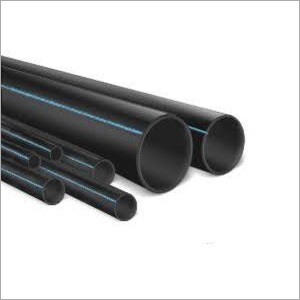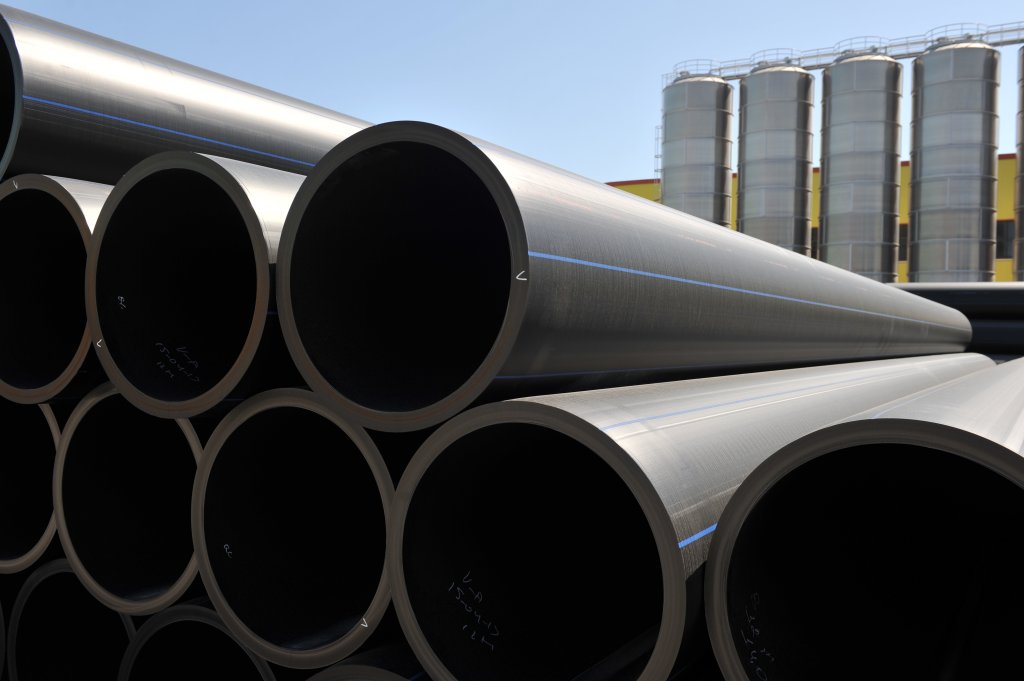A Comprehensive Overview to the Numerous Uses of HDPE Pipeline in Building And Construction and Market
HDPE pipes have become an essential component in modern-day building and construction and commercial applications. Their unique residential or commercial properties, such as resistance to corrosion and light-weight design, make them ideal for a wide variety of usages. From water supply systems to agricultural irrigation, HDPE pipes provide options that improve performance and sustainability. Recognizing their varied applications is crucial for specialists looking to enhance facilities. What particular advantages do these pipes bring to each industry?
Supply Of Water and Distribution Solutions
Water system and circulation systems are critical components of urban framework, often depending on high-density polyethylene (HDPE) pipelines for their durability and efficiency. These systems transportation drinkable water from treatment facilities to customers, making sure availability and security. HDPE pipes are favored for their resistance to corrosion, chemicals, and severe temperatures, which enhances their longevity and lowers upkeep costs. In addition, their light-weight nature permits much easier setup and transportation, making them perfect for different city and country applications.
The flexibility of HDPE pipes enables them to be mounted in tight rooms and around challenges, reducing the need for extensive excavation (Pipe Supplier American Plastics Midland). Their smooth interior surface reduces friction losses, enhancing water circulation rates. As cities continue to expand, the need for trusted water systems boosts, positioning HDPE pipes as a sustainable service for contemporary facilities jobs. Their proven track document makes them a favored choice amongst engineers and metropolitan planners alike
Wastewater Monitoring and Therapy
Reliable wastewater administration and treatment are crucial for preserving public wellness and environmental top quality. HDPE pipes play a crucial duty in this process due to their resilience, resistance to corrosion, and ability to hold up against extreme chemicals. These pipes are generally made use of in different applications, consisting of sewer system, stormwater water drainage, and wastewater treatment centers. Their light-weight nature assists in less complicated setup and transport, minimizing labor costs and time.
Furthermore, HDPE pipelines have a smooth indoor surface area that lessens rubbing loss, promoting efficient flow rates. They are additionally much less susceptible to leakages and failures contrasted to standard products, making sure that contaminants are contained successfully. Their versatility permits for adaptability in different dirt problems, making them appropriate for varied ecological settings. As markets increasingly focus on lasting practices, using HDPE pipes in wastewater monitoring systems lines up with goals for lowering ecological effect and enhancing resource recuperation.
Agricultural Watering Solutions
In farming settings, reliable irrigation remedies are essential for enhancing crop returns and taking care of water resources. HDPE (High-Density Polyethylene) pipes play an important duty in modern-day irrigation systems because of their durability, versatility, and resistance to deterioration. Their capacity to withstand high stress makes them ideal for both surface and subsurface watering applications, making certain uniform water distribution across areas.
Farmers can make use of HDPE pipelines in drip watering systems, which supply water directly to plant roots, lessening wastefulness and advertising healthy development. In addition, these pipelines are light-weight and easy to install, decreasing labor expenses and installation time. Their lengthy lifespan and low maintenance needs further enhance their charm in farming practices.
HDPE pipelines are ecologically friendly, as they can be reused and do not leach harmful chemicals right into the soil. This makes them a sustainable selection for farmers intending to take on eco-friendly farming approaches while optimizing efficiency.
Industrial Applications and Procedures
Convenience is a characteristic of HDPE pipes, making them crucial in numerous industrial applications and processes. These pipelines are widely used in chemical handling industries as a result of their outstanding resistance to a variety of corrosive compounds. HDPE's lightweight nature, combined with high tensile toughness, enables easy setup and lasting performance popular environments.
In weblink the oil and gas market, HDPE pipelines play a necessary duty in carrying hydrocarbons and gases, thanks to their longevity and versatility - American Plastics HDPE Pipe for Oilfield. In addition, they are utilized in mining procedures for the transportation of slurry and various other products, where standard piping systems might fall short
Moreover, HDPE pipes are progressively made use of in producing centers for water supply lines and wastewater monitoring. Their capability to endure severe temperatures and stress makes them suitable for a selection of commercial processes. In general, HDPE pipes add greatly to performance and safety and security across varied industrial applications.
Stormwater Monitoring and Water Drainage Solutions
Stormwater administration and drainage systems are essential components in city framework, created to take care of excess rainfall and lower flooding threats. High-density polyethylene (HDPE) pipelines are significantly made use of in these systems due to their sturdiness, versatility, and resistance to rust. These pipelines successfully move stormwater far from booming locations, minimizing surface runoff and avoiding waterlogging.
HDPE's lightweight nature helps with much easier installation, decreasing labor expenses and building time. Furthermore, its resistance to chemicals and ecological stress factors warranties long life and integrity in numerous environments. In enhancement to typical drain applications, HDPE pipelines are additionally used in ingenious options such as eco-friendly facilities, that includes rain gardens and permeable sidewalks.

Regularly Asked Inquiries
How Does HDPE Pipe Contrast to PVC Pipeline in Cost?
Generally, HDPE pipe has a tendency to be extra expensive than PVC pipe due to its improved durability and versatility. Nonetheless, lasting cost plumber gas line repair considerations, such as maintenance and life expectancy, might prefer HDPE in details applications.

What Is the Life Expectancy of HDPE Water Lines Under Diverse Problems?
HDPE pipes site here commonly have a lifespan of 50 to 100 years, depending on environmental problems, installment practices, and usage. Elements such as temperature, soil type, and exposure to chemicals can greatly influence their sturdiness.
Can HDPE Pipes Be Recycled After Usage?
Yes, HDPE pipelines can be recycled after usage. The recycling procedure includes melting down the product, permitting it to be repurposed into brand-new items, thus promoting sustainability and minimizing environmental influence connected with plastic waste.
Are There Any Kind Of Particular Installation Difficulties With HDPE Pipes?
Setup challenges with HDPE pipes consist of appropriate jointing techniques, making sure sufficient trench problems, and handling thermal expansion. In addition, proficient labor is required to take care of specific equipment, which can make complex the installation procedure in various atmospheres.

What Certifications Should I Search For When Acquiring HDPE Water Lines?
When acquiring HDPE pipelines, one need to seek qualifications such as ASTM, AASHTO, and ISO, which validate top quality and conformity with market standards, assuring durability and efficiency in numerous applications. - American Plastics HDPE Pipe Manufacturing